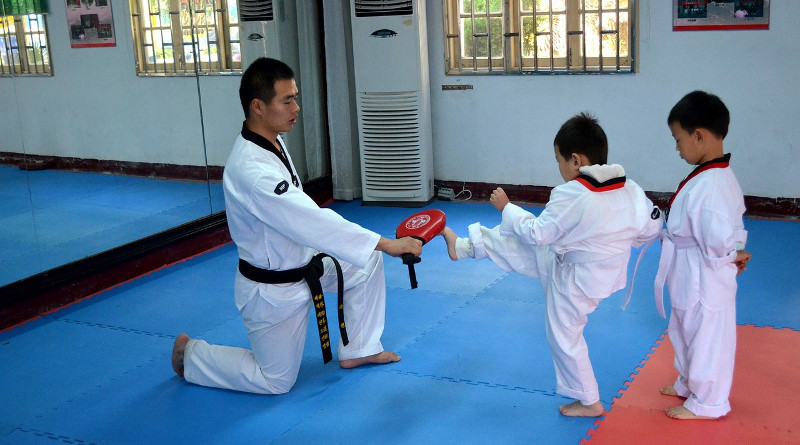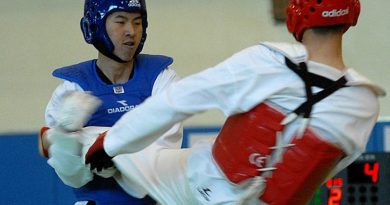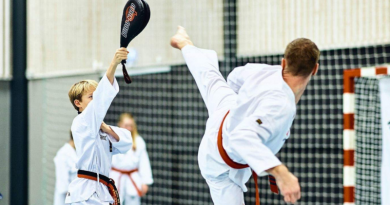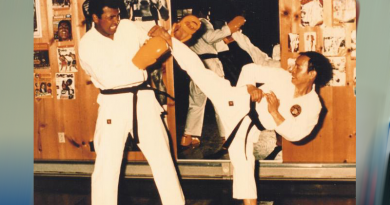Taekwondo and Children
One of the most important parts of a parent’s job is to raise their child to become a good adult. We want our children empowered, to excel, to have focus, to set and achieve goals, to have self-confidence and self-respect, and to become truly compassionate members of our community.
We as parents, and as the community, should be looking for ways to get our kids more active, be more energetic, learn respect and discipline, gain focus and perseverance, and most of all, achieve a personal sense of competency and confidence. We should be looking for these core values and abilities which help our children become successful adults.
Wouldn’t you want to increase your child’s self-esteem in an honest way, improve their fitness, and sharpen their focus? These are all skills which can benefit them throughout their lives. Although there is no one complete solution to “perfect parenting” or “road to success”, taekwondo training may provide some answers.
Many children today spend way too many hours watching television, sitting in front of their computers, nose stuck in a phone, or playing video games. In the U.S., there is an astounding increase in childhood obesity. We are seeing almost an epidemic of behavior problems with our youth, i.e. isolation, bullying, anger, lack of ability to resolve conflict, low self-esteem, lack of initiative and inability to “follow through”, lack of perseverance, lack of focus or attention, and even the basic understanding of the concept that respect and power is earned.
Although we often allow children to progress in school without doing the required work or award trophies to the unmerited, are we really doing them justice? Do we pass the student who is unprepared? This is not how real life will treat them as adults. Or do we help the child learn that his actions, or lack of action, results in his own reward and recognition? Life has speed bumps and even failure teaches us another life lesson; if we can, we get another opportunity for success. We need to instill a sense of consequences in children. Recognition for hard work and disciplined behavior reaps the rewards of self-confidence and competence. These are earned through diligence and practice. What a great practice for their future life!
Kids today seem more overweight, sedentary, and most importantly unable to balance the overwhelming input they receive from all forms of media. They are too busy to be thinking about what they do, what they can do, and what they want to do. They are truly in a position of too much and in too many directions. Their minds become cluttered, their bodies become sedentary, they become unmotivated and their will scatters. Developing a clear mind which is able to focus, and become still, is one aspect of good training. We should also consider martial arts training as a possible solution for children who may feel insecure, or are inattentive, or unable to cope with challenges and stress.
Children benefit from discipline, and adults often impose discipline. But is it the beneficial form of discipline? Do we want to punish a child for not cleaning their room, or do we want to create self-discipline where the parent praises his child for cleaning his room before being asked? Developing good habits of self-care and self-discipline, of setting goals and finishing tasks, are not just goals of taekwondo, they are the basis of a good life. Learning perseverance is a core value for all of us, adults and children alike, which we need to incorporate into our lives. It is too easy to give up, just quit, or ignore.
Of all the elements of solid taekwondo training through discipline and physical fitness, self-confidence and self-competency may hold the most benefit. Children learn to focus, setting goals, physical fitness which increases strength, develops coordination and balance, and overall health. We can improve flexibility, balance, and control.
Children who study martial arts seem to excel in all areas of their lives. That is innate in the experience of taekwondo. Even if they experience defeat, they learn to continue to try to improve and better themselves. There is a direct correlation or feedback between their increasing competencies and their increasing self-confidence. One remembers a wonderful example of this at a friendly inter-studio training session when overhearing a young 16-year-old black belt student talking with the mother of a red belt student visiting from a different studio. The red belt student was 20 kg heavier and 15 cm taller than the black belt teenager. The mother casually commented on how the black belt student, although smaller and lighter than her red belt son, could easily beat her larger and heavier red belt son in a “street fight”. The black belt teenager, calmly and respectfully, answered, “Yes, I could, (pause) but I never would”. The black belt teenager showed complete confidence in his own competence. With taekwondo, we learn to take care of those who may not be as strong as us. We learn not to bully. We avoid the fight. We learn not to judge, or take advantage, based on our capabilities. We can participate in a healthy competition, but we don’t need to destroy. I see many full-grown adults without such an admirable balance of self-confidence and competency.
Taekwondo training may expand your child’s potential. Taekwondo training for children may not always be an easy solution to behavioral problems. But in the broader sense, following the philosophy and physical training incorporated in its every aspect, it will improve your child’s sense of self, his self-confidence, and belief in his abilities and competency.




